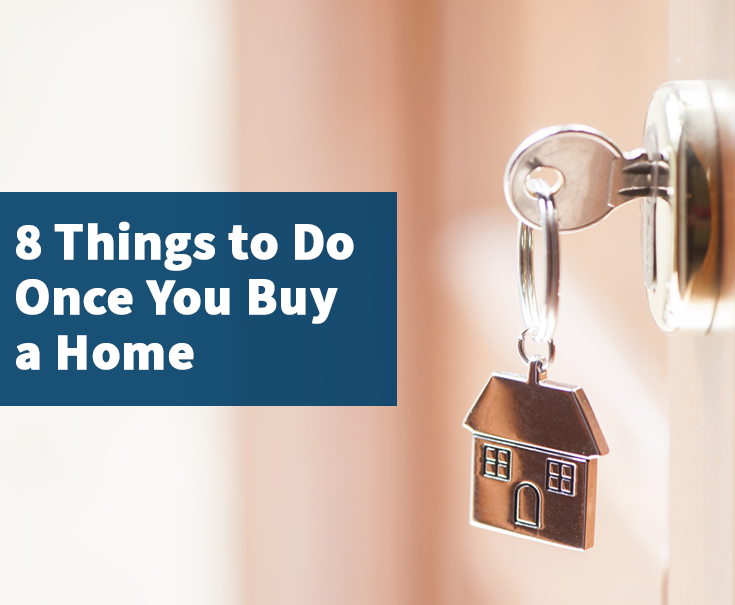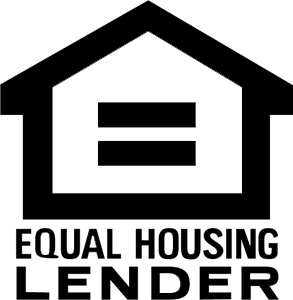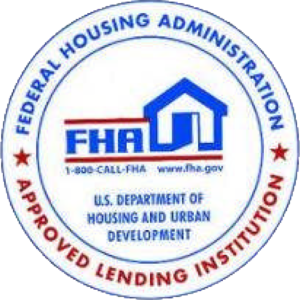8 Things to Do Once You Buy a Home
Now that you are about to own a home, you should start thinking about how best to get that home ready to live in!
A lot of steps can be taken to ensure you don’t have unforeseen problems shortly after moving in. While many of these suggestions are simple, there are also details that are easily overlooked or just aren’t thought through. Spending time looking over and fixing these issues can go a long way to avoid greater problems down the line.
To help you find success after the home buying process, we’ve collected these eight tips to get you started!
- Keep Receipts for Improvements – If you make improvements or repairs to the house, make sure you keep your receipts! When you sell your house you are eligible to exclude up to $250,000 of gain from taxes, or up to $500,000 if married and filing jointly. The gain is based on the homeowner’s total cost of investment in the property at the time of sale, which includes the price paid for the home and any improvements you made over the years.
- Identify Your Property Lines – If you didn’t have a survey done when you bought the house it would be a good idea to do one. If you had a survey done, now would be a good time to stake out the property lines so you have a visual representation of exactly where the lines are.
- Staking out the property lines is usually done by a professional land surveyor and involves placing marks at the property corners and along the property lines. Doing this can help avoid disputes with neighboring owners and help you know where to put the fence or plantings you might be considering.
- Insure Your Property – The mortgage company will likely require you to have homeowners’ insurance. Make sure that you insure for the replacement costs and adjust yearly as needed.
- You don’t want to have an accident and find that to replace your house costs twice the money the insurance company is giving you. You also might want to put an umbrella policy in place. This is liability insurance that covers you above and beyond the limits of other policies. If there was a very bad car accident or some other incident your house would be safe because the umbrella policy would pay off the claim.
- Understand How to Shut Off the Water – Locate the main water shutoff valve. If you are going on vacation, especially if it is winter and cold out, it is a good idea to shut off the water. The last thing you want is to have a leak or other water issue that turns into a flooding or mold problem because you weren’t around to address it quickly. You also don’t want to risk having the pipes burst because the water in them froze. This happens when water isn’t flowing and just sits in the pipes and then freezes.
- Check The Circuit Breaker Panel – It isn’t that uncommon, especially in older homes that have been remodeled, to have circuits mislabeled. Have someone go upstairs and check the rooms while you turn the circuits on and off, then clearly label each circuit. If you are in the middle of doing something and you lose electricity, you won’t want to waste time trying to figure out which circuit belongs to which room.
- Check The Drainage – It is best to limit the chances of any kind of water issues. If the spouts coming down from the roof right next to the house are empty as soon as they hit the ground, it is a good idea to extend them out and run the water away from the house. If your house has a sump pump, check it, and make sure it is working.
- Check Your Dryer Vents – Clogged valves can lead to a fire. If you start smelling something or if your clothes seem to be taking a long time to dry you might have to consider cleaning your vents. If your dryer is centrally located in the house, you will have longer ducts and are more likely to have a clog.
- Check the Smoke Detectors and Carbon Dioxide Detectors – This is an easy thing for people to forget about or just not pay attention to. The detectors never go off and everyone just assumes they are working. Better to check the batteries and be sure you are safe.
When getting ready to buy a home there is a lot to think about. Planning can help you stay organized, reduce the stress level and make sure you are taken care of.
You should also plan ahead when it comes to financing your home. The best way to do that is to talk to a good mortgage professional. They can pre-qualify you for a mortgage, discuss different options and make sure you have the option that is best suited for your individual needs.




